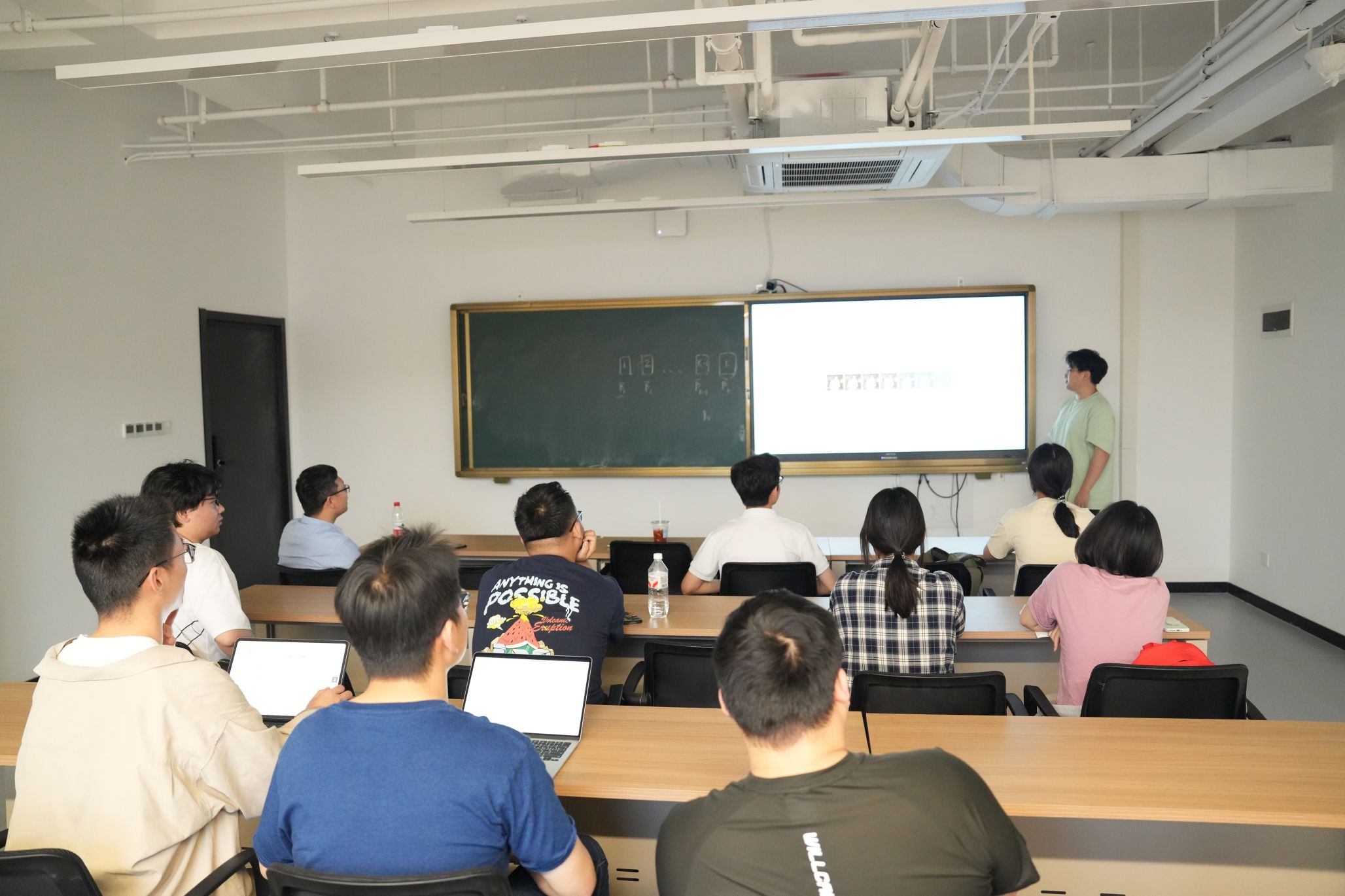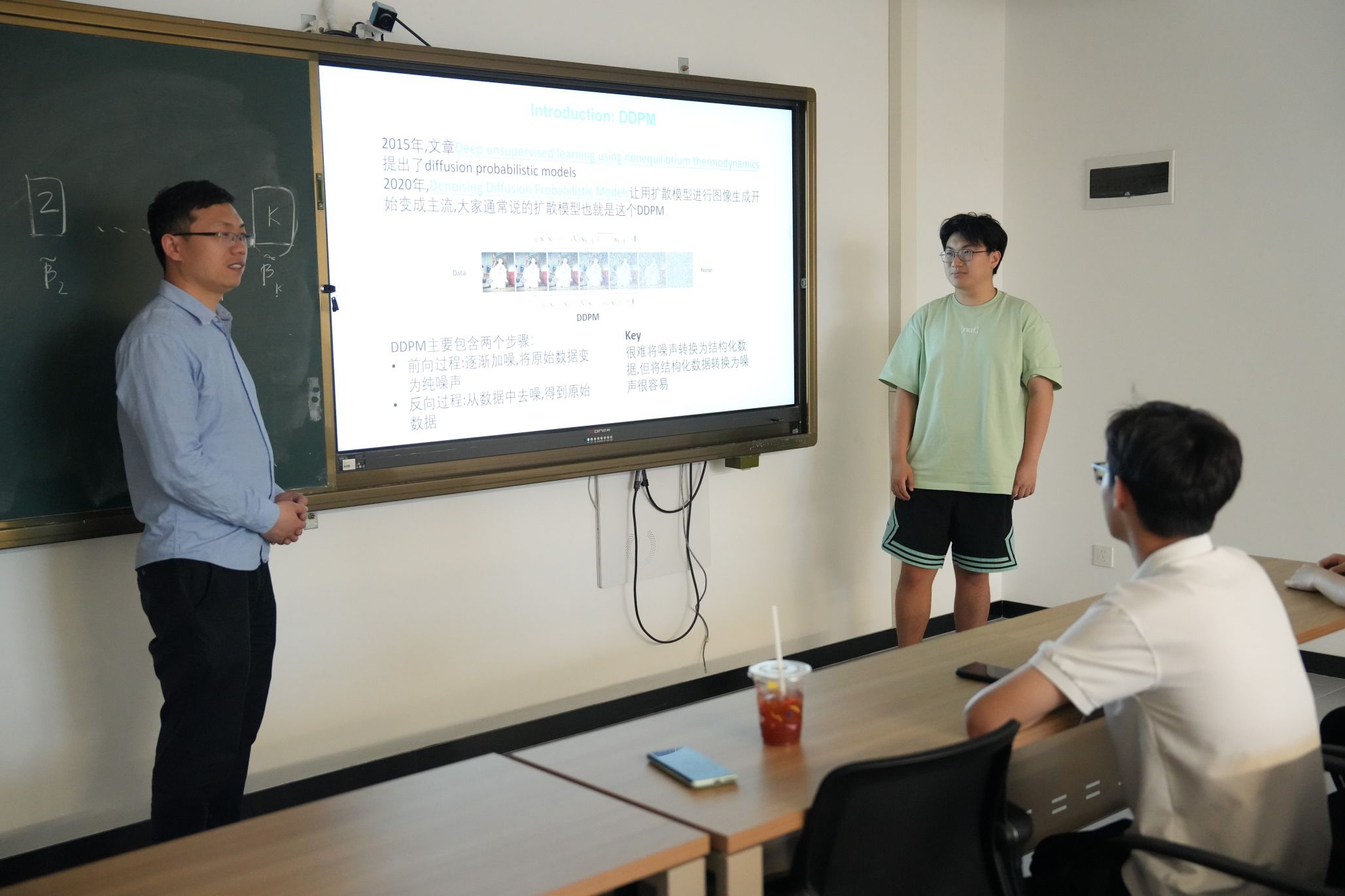Amid the global surge of artificial intelligence, generative AI technologies are penetrating various fields at an unprecedented pace, with the biomedical domain, in particular, demonstrating immense potential for application. The seminar “Generative AI and Its Biomedical Applications,” meticulously led by Professor Jin Suoqin, provided undergraduates with a valuable platform to learn cutting-edge knowledge and explore research directions. The in-depth discussions in two themed sessions not only solidified our understanding of the fundamental theories of generative AI but also sparked our imagination about its vast prospects in biomedical big data analysis.
This seminar was grounded in probability theory, stochastic processes, and neural networks as core theoretical foundations, focusing on generative artificial intelligence methods and their frontier applications in biomedical big data analysis. With his profound academic expertise and rigorous teaching style, Professor Jin guided us through a systematic study of key theories and models of generative AI, including Variational Autoencoders (VAE), Generative Adversarial Networks (GAN), Diffusion Models, and Flow Matching.

In the first seminar, Zhikai Huang from the Class of 2023 (Hongyi Program) systematically explained the origins and development of generative AI models and offered an in-depth analysis of the limitations of traditional machine learning in handling high-dimensional and complex data. Through detailed mathematical derivations, he elaborated on the core principles of VAE and GAN, and from the perspective of probabilistic graphical models, explained the variational inference mechanism in VAE and the adversarial training mechanism of GAN. He further introduced variant models such as CVAE and WGAN, analyzing their advantages in sample control and training stability. Finally, using “Auto-Encoding Variational Bayes” as an example, Zhikai Huang provided a deep exploration of VAE’s practical applications in image generation, offering participants a profound understanding of both the theory and application of generative models.
In the second seminar, Zhikai Huang focused on the diffusion models that have recently attracted significant attention. As an emerging class of generative AI models, diffusion models have demonstrated outstanding performance in fields such as image generation and audio synthesis. The presentation provided an in-depth analysis of the denoising diffusion probabilistic model (DDPM), explaining both the forward noise-adding process and the reverse denoising mechanism, highlighting its ingenious use of a Markov chain to model the generation process. The report then explored conditional diffusion models, explaining how conditional information enables fine-grained control over generated samples. More importantly, it re-examined the diffusion process from the perspective of stochastic differential equations (SDEs), revealing the profound mathematical essence of diffusion models and providing a theoretical foundation for further model optimization.

Professor Jin Suoqin’s seminar went far beyond simple knowledge transmission; it emphasized cultivating students’ research abilities and innovative thinking. Professor Jin encouraged students to ask insightful questions and think critically, providing detailed answers to their inquiries. By linking cutting-edge research topics, he guided students to explore the applications of generative AI in biomedical fields—such as spatiotemporal data generation, virtual cell construction, drug discovery, and disease diagnosis. Participation in the “Generative AI and Its Biomedical Applications” research seminar not only enabled students to master the theoretical foundations and core algorithms of generative AI but also stimulated their enthusiasm for scientific research and their willingness to embrace challenges, laying a solid foundation for applying what they’ve learned to future practice and advancing the use of generative AI in the biomedical field.
This seminar has benefited us greatly, and we look forward to more opportunities to participate in similar research discussions in the future, continuously improving our academic literacy and research capabilities. Under the dedicated guidance of Professor Jin Suoqin, we are confident that we will ride the wave of artificial intelligence, striving forward and reaching new heights.